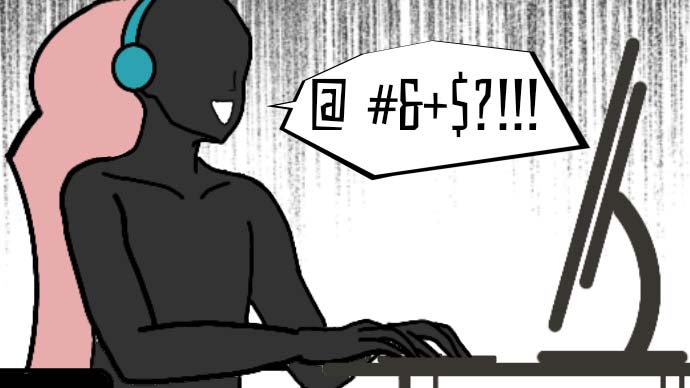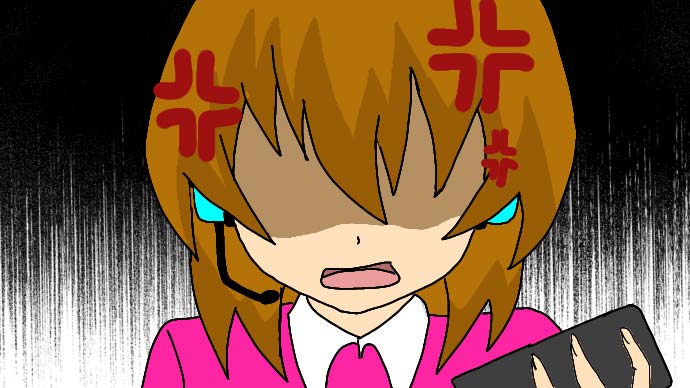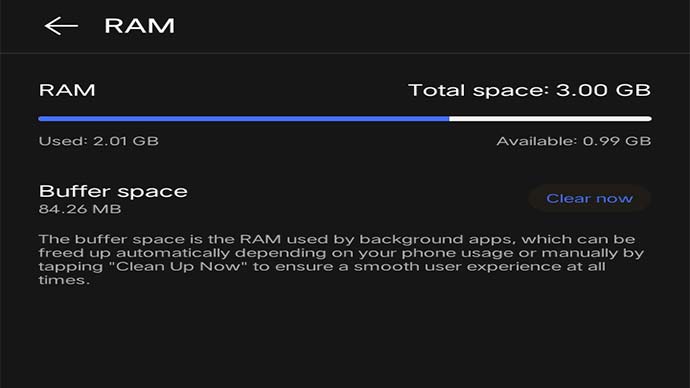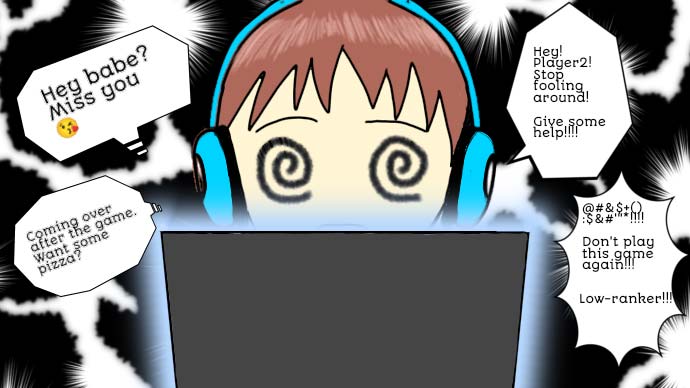Most gamers will spend a few bucks for a solid gaming headset. It's great for diving deeper into video games and experiencing background music and sound effects as they were intended.
And the built-in microphone enables in-game voice communication, which comes in handy for online multiplayer games.
Whether it's to call for backup, to share strategic plans and tactical decisions, to build morale when your team is losing, or simply to chat with other gamers and shoot the breeze, the in-game voice chat feature can be great when playing online.
So why do so many gamers turn the in-game voice chat feature off? Why do they throw away team conversations and play online multiplayer games as if they were solo? Here are several common features.
5. Toxic Trash Talkers

Not all gamers can handle flames and insults, especially when it's clearly not their fault. Many online gamers are toxic and quick to spit foul words, even at their own teammates who did nothing wrong.
Trash talking is normalized in the current culture of online multiplayer games—especially competitive ones. It greatly affects a player's morale, confidence, and even mental health.
For many online gamers, it's better to turn off in-game voice communications and block those insults rather than losing the will to play or even being provoked into an uncouth shouting match.
4. Annoying Captain Wannabes

Every team needs a good leader, but wannabe leaders who are controlling and domineering are some of the most annoying people to come across in online games. And when things don't go their way, they're usually quick to shift blame onto anyone but themselves.
Listening to these kinds of players is a big waste of time, so most gamers end up turning off voice chat altogether so they can play the game without needing to endure that annoying person.
3. Minimizing RAM and Data Usage

Not everyone has a cutting-edge PC, or a last-generation PC, or even one that's several years old but still pretty good. More gamers than you think are playing on crappy hardware because they can't afford upgrading.
When gaming on a device that has limited RAM, turning off certain features—no matter how insignificant they might seem—can help eke out as much performance as possible.
And sometimes it's not about RAM usage but data usage. Not everyone has unlimited data, even when gaming on a Wi-Fi connection. In this case, online games already take up valuable bandwidth—and cutting out voice data from in-game voice chat can help preserve some of it.
For example, Call of Duty: Mobile consumes approximately 40MB of mobile data per hour of gaming, while Free Fire consumes about 30MB of mobile data per hour of play. When a player has limited data, it's better to put their resources toward the game than voice chat.
2. Introverted or Lacking Confidence

Introverted gamers often prefer to play single-player games so they can progress at their own pace without pressure from other players, but many also play online multiplayer games.
Of course, they usually also disable chat features so they don't have to deal with social pressures.
These gamers may feel comfortable enough to play online multiplayer games with other players, as long as there's no one interrupting their precious moments, either in the game or outside the game.
And then there are those gamers who are more than just introverted—they lack the social confidence to initiate or participate in conversations with others, so they just turn off communication. They might still listen in, but they'll keep their microphone muted.
1. It's Simply More Peaceful

In an online multiplayer game, you can't always choose who to play with. You might be able to choose your team, but conflicting schedules make it so that you'll end up playing on your own from time to time—and when that happens, you get teamed up with strangers.
That's when you'll find yourself caught between random conversations, failed attempts at comedy, and trolls who just want to be a nuisance for reasons unknown. It's not as bad as trash talking, but it's still annoying.
You might also end up being the lone wheel that gets tacked on as the stranger to a group of friends. They might have a lot of vocal fun with each other, but for someone who isn't part of the friend group, their conversations can end up being annoying to hear.
It can ruin the game mood, so many prefer to mute in-game voice chat and just rely on quick chat options or other in-game signals.
Even if you're an extrovert, it's hard to deny that many games are just more peaceful and enjoyable when voice chat is disabled. Blocking out communication can help you focus on your gameplay.
And that's important because many gamers turn to video games as a form of escapism and/or relaxation. In-game voice communication gets in the way of that, more often than not.



